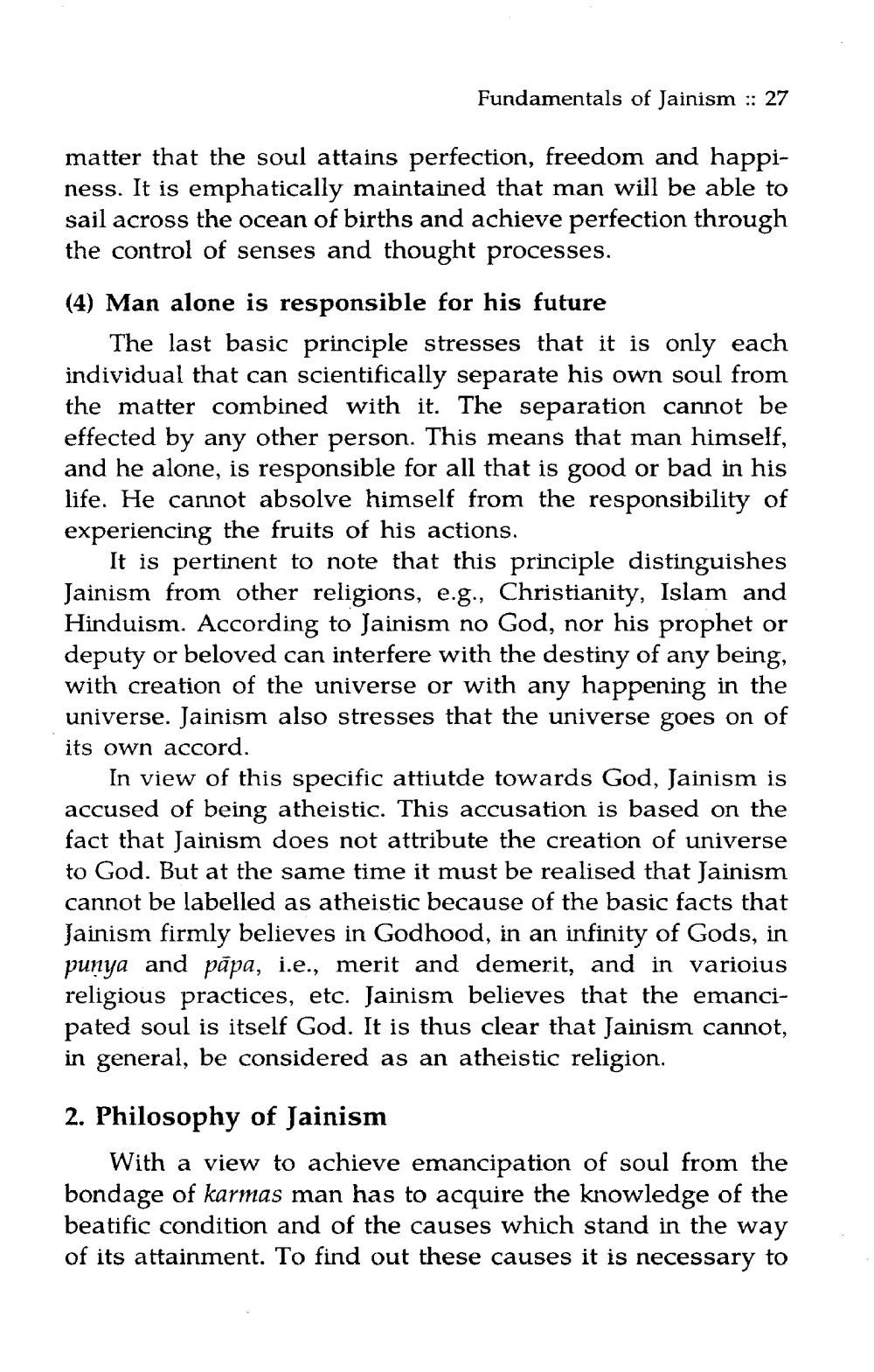________________
Fundamentals of Jainism :: 27
matter that the soul attains perfection, freedom and happiness. It is emphatically maintained that man will be able to sail across the ocean of births and achieve perfection through the control of senses and thought processes. (4) Man alone is responsible for his future
The last basic principle stresses that it is only each individual that can scientifically separate his own soul from the matter combined with it. The separation cannot be effected by any other person. This means that man himself, and he alone, is responsible for all that is good or bad in his life. He cannot absolve himself from the responsibility of experiencing the fruits of his actions.
It is pertinent to note that this principle distinguishes Jainism from other religions, e.g., Christianity, Islam and Hinduism. According to Jainism no God, nor his prophet or deputy or beloved can interfere with the destiny of any being, with creation of the universe or with any happening in the universe. Jainism also stresses that the universe goes on of its own accord.
In view of this specific attiutde towards God, Jainism is accused of being atheistic. This accusation is based on the fact that Jainism does not attribute the creation of universe to God. But at the same time it must be realised that Jainism cannot be labelled as atheistic because of the basic facts that Jainism firmly believes in Godhood, in an infinity of Gods, in punya and pāpa, i.e., merit and demerit, and in varioius religious practices, etc. Jainism believes that the emancipated soul is itself God. It is thus clear that Jainism cannot, in general, be considered as an atheistic religion.
2. Philosophy of Jainism
With a view to achieve emancipation of soul from the bondage of karmas man has to acquire the knowledge of the beatific condition and of the causes which stand in the way of its attainment. To find out these causes it is necessary to




